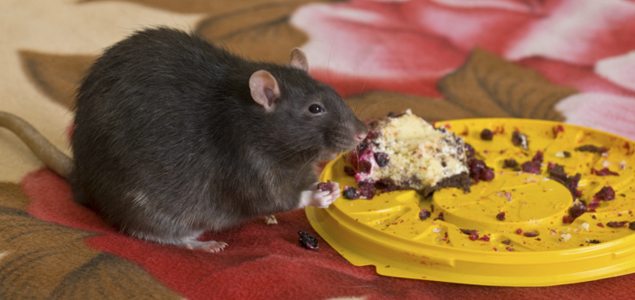Paul Kenny, associate professor of molecular therapeutics at the Scripps Research Institute, has done research that indicates that high-fat, high-calorie foods could affect the brain in a similar way as cocaine and heroin.
In one study, published in Nature Neuroscience, Kenny studied three groups of lab rats for 40 days. One of the groups was fed regular rat food. A second was fed bacon, sausage, icing, cheesecake and other fattening foods for one hour each day. The third group was allowed to access to the unhealthy foods for up to 23 hours a day.
The rats in the first two groups ate when they were hungry and didn’t present any significant changes. The third group stopped eating the regular healthy food and instead showed a preference for the cheesecake.
The rats that indulged the human food quickly became obese – and interestingly, their brains also changed. By monitoring implanted brain electrodes, the researchers found that the rats in the third group slowly developed a tolerance to the pleasure the food gave them and had to eat more to experience a high.
They began to eat compulsively, continuing to do so in the face of pain. When the researchers applied an electric shock to the rats’ feet in the presence of the food, the rats in the first two groups were scared away from eating. But the obese rats were not.
“Their attention was solely focused on consuming food,” says Kenny. “It’s much like what happens with drug addiction. You don’t need heroin, you don’t need cocaine. It’s got no nutrient value. It doesn’t do anything for you except make you feel good.”
Taking drugs such as cocaine and eating too much junk food both gradually overload the so-called pleasure centers in the brain, according to Kenny. Eventually these pleasure centers “crash,” and achieving the same pleasure or even just having a feeling of normalacy requires increasing amounts of the drug or food, says Kenny.
“People know intuitively that there’s more to [overeating] than just willpower,” he says. “There’s a system in the brain that’s been turned on or over-activated, and that’s driving [overeating] at some subconscious level.”







